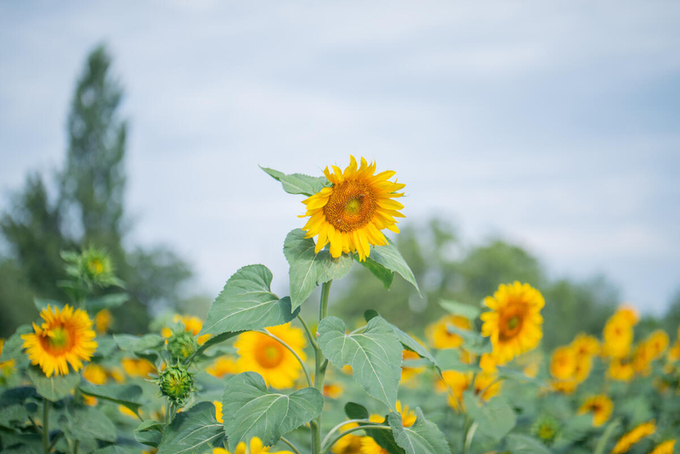November 27, 2025 | 10:30 GMT +7
November 27, 2025 | 10:30 GMT +7
Hotline: 0913.378.918
November 27, 2025 | 10:30 GMT +7
Hotline: 0913.378.918

Sunflowers in Azerbaijan.
The benchmark for world food commodity prices was broadly unchanged in July for the second month in a row, as increases in international quotations of vegetable oils, meat products and sugar offset an ongoing decrease in those for cereals, the Food and Agriculture Organization of the United Nations reported Friday.
The FAO Food Price Index, which tracks monthly changes in the international prices of a set of globally-traded food commodities, averaged 120.8 points in July, marginally below its revised 121.0 figure for June. The index is now 3.1 percent lower than its corresponding value one year earlier.
The FAO Cereal Price Index declined by 3.8 percent from June as the global export prices of all major cereals decreased for the second consecutive month. Wheat quotations dipped on increasing seasonal availability from ongoing winter harvests in the northern hemisphere and generally favorable conditions in Canada and the United State of America supporting expectations for large spring wheat harvests later in the year.
Maize export prices also declined as harvests in Argentina and Brazil progressed ahead of last year’s pace and crop conditions in the United States remained robust. The FAO All-Rice Price Index declined by 2.4 percent from June amid generally quiet trading activities for both Indica and Japonica varieties.
The FAO Vegetable Oil Price Index, by contrast, rose 2.4 percent from June to reach a one-and-a-half-year high. Global quotations for palm, soy, sunflower and rapeseed oils all rose, lifted by robust demand for soy oil from the biofuel sector and deteriorating crop prospects for sunflower and rapeseed oils in several major producing countries.
The FAO Meat Price Index increased by 1.2 percent in July amid robust import demand for ovine, bovine and poultry meat, even as pig meat prices declined marginally due to an oversupply situation in Western Europe.
The FAO Sugar Price Index increased by 0.7 percent from June as lower-than-expected production in Brazil outweighed the impact of improved monsoon rainfall in India and conducive weather conditions in Thailand.
The FAO Dairy Price Index was unchanged in July, as decreases in the quotations for milk powders offset increases in those for butter and cheese.
(FAO)

(VAN) A new study reveals how the simultaneous effects of ocean acidification, salinity and loss of oxygen are making the world more fragile.

(VAN) Hopes are growing that the creation of the first 3D turkey gut model could be a turning point in the battle against the virulent blackhead disease.

(VAN) Tyson, America’s biggest meat supplier, plans to shutter one of its largest beef processing plants as the industry continues to struggle with low cattle supplies and political pressure from Washington.

(VAN) New FAO study shows how digital solutions are empowering farmers and fishers to prevent losses and build resilient agrifood systems.

(VAN) Brazil's COP30 presidency pushed through a compromise climate deal on Saturday that would boost finance for poor nations coping with global warming but that omitted any mention of the fossil fuels driving it.

(VAN) Poultry farmers in the UK have been warned that they could face one of the worst winters yet for bird flu.

(VAN) Prices of main-crop paddy have risen sharply, with jasmine rice hitting 16,100 baht per tonne — the highest level in years.